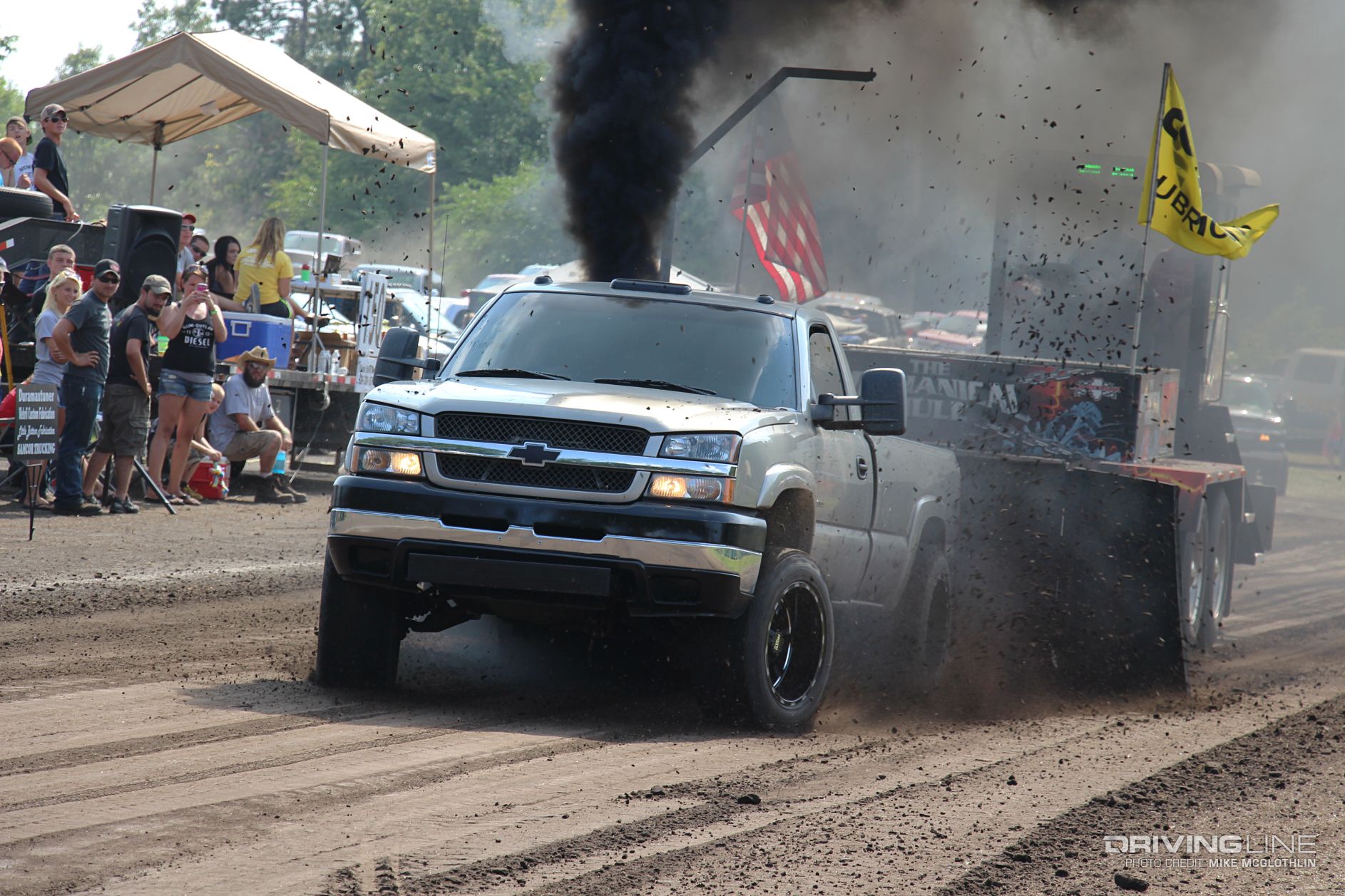
Chevy and GMC ¾- and 1-ton truck owners enjoy customizing their rides, be it with lift, larger wheels and tires, or added horsepower and torque. But, each of those things makes life much harder on the steering and front suspension components. So, before you get ahead of yourself, make sure you prep your GM’s independent front suspension (IFS) for the added load it will face. To give you a little help, here are our top five must-haves.
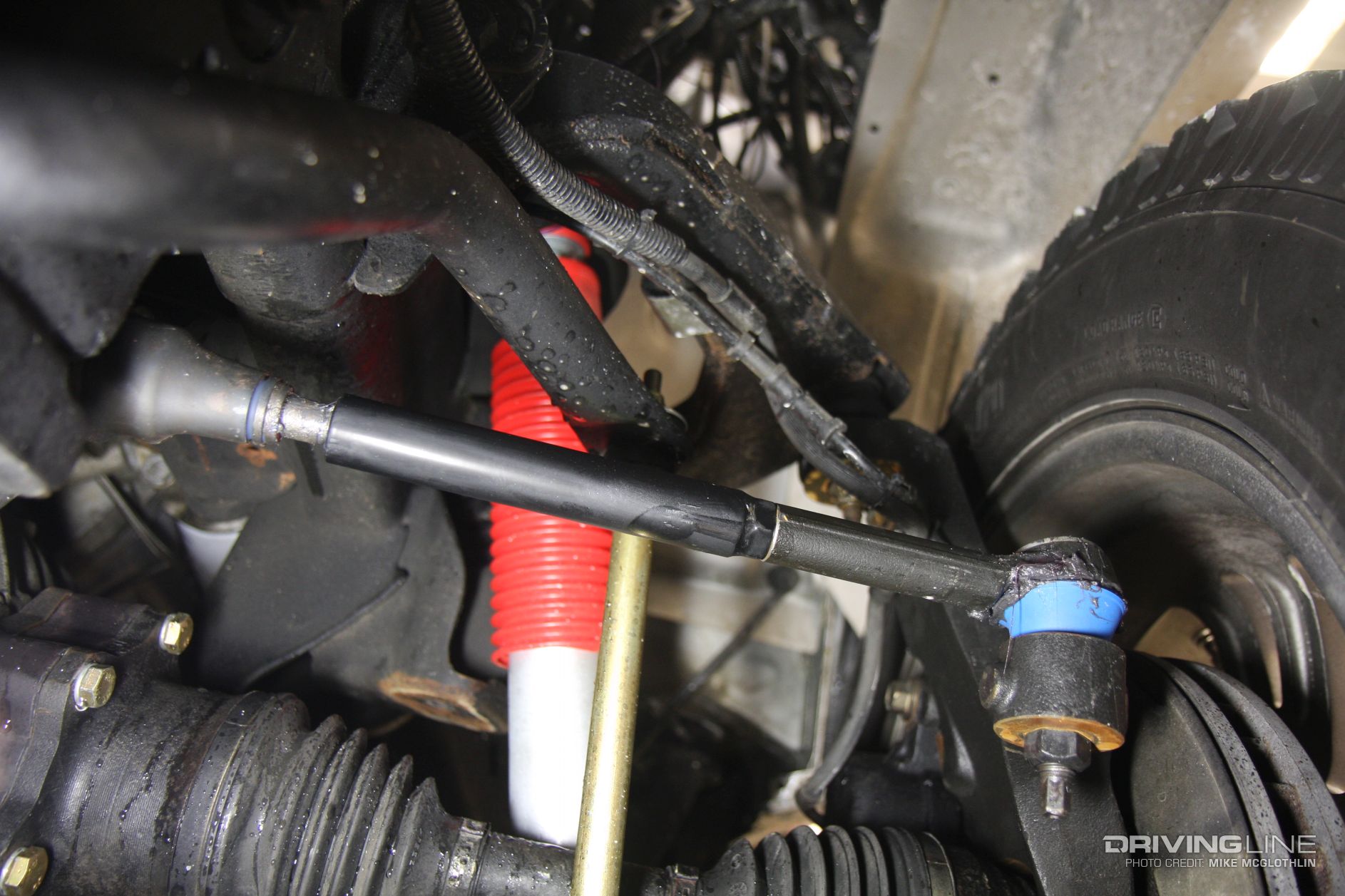
Tie-Rod Sleeves
The elephant in the room on ’01-’10 GM trucks (diesel and gas, 1500-3500 models) are the small diameter factory tie rods. Not only are they a hindrance at stock ride height and factory power levels, but bigger wheels and tires, rugged off-road terrain, boosted four-wheel drive launches, truck pulling, and especially extra horsepower rapidly amplify the problem. The good news is the fix is cheap and easy. Aftermarket tie-rod sleeves (from companies like Merchant Automotive and PPE) simply thread onto the factory tie rods and keep them from flexing. This simple addition makes the tie rods up to five times stronger! One last tip- spend a few extra bucks and go with stainless steel sleeves as they won’t rust or make alignments a chore.
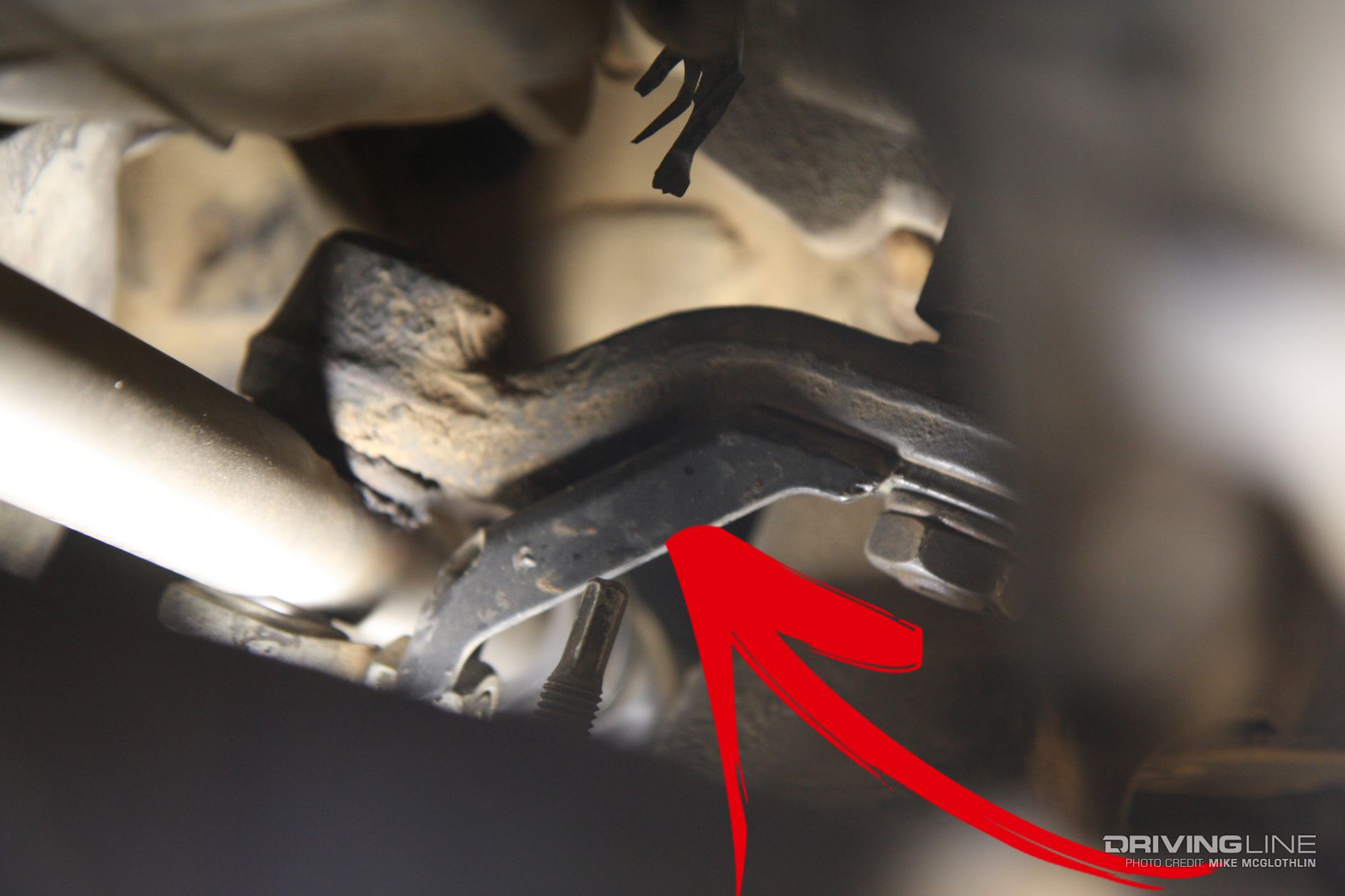
Pitman & Idler Arm Braces
In case you didn’t know, the pitman arm on your HD links the steering gearbox to the centerlink, while the idler arm supports the opposing end. Ball joints are incorporated into each arm, but they are designed to only move horizontally. Once increased horsepower or load is present, the centerlink has a tendency to rotate, and when it does, a toe-in situation occurs at the front wheels. Pitman and idler arm braces stop the factory centerlink from twisting in this fashion, yet still allow the side to side movement that’s needed to steer the truck. They use spherical-rod ends instead of the factory arm joints, as well as utilize frame-mounted brackets. If you’ve added a suspension lift or a front locker, this is a must-have upgrade.

Torsion Bar Keys
Purple keys, green keys, white keys, orange keys, it doesn’t matter the color. In our experience, the best torsion bar keys we’ve come across are the MAXXCam 2 units from Suspension Maxx. Their hex calibrated (and patented) keys offer seven incremental adjustments—so no matter what leveling kit you’re running (or even if your truck is lowered), you get the exact height adjustment you’re after. The keys can be adjusted to virtually any corrected height, incorporate seamlessly with the stock suspension, offer no torsion bar preload, allow you the options of retaining your factory shocks (to keep costs down), and won’t reduce your truck’s ride quality.
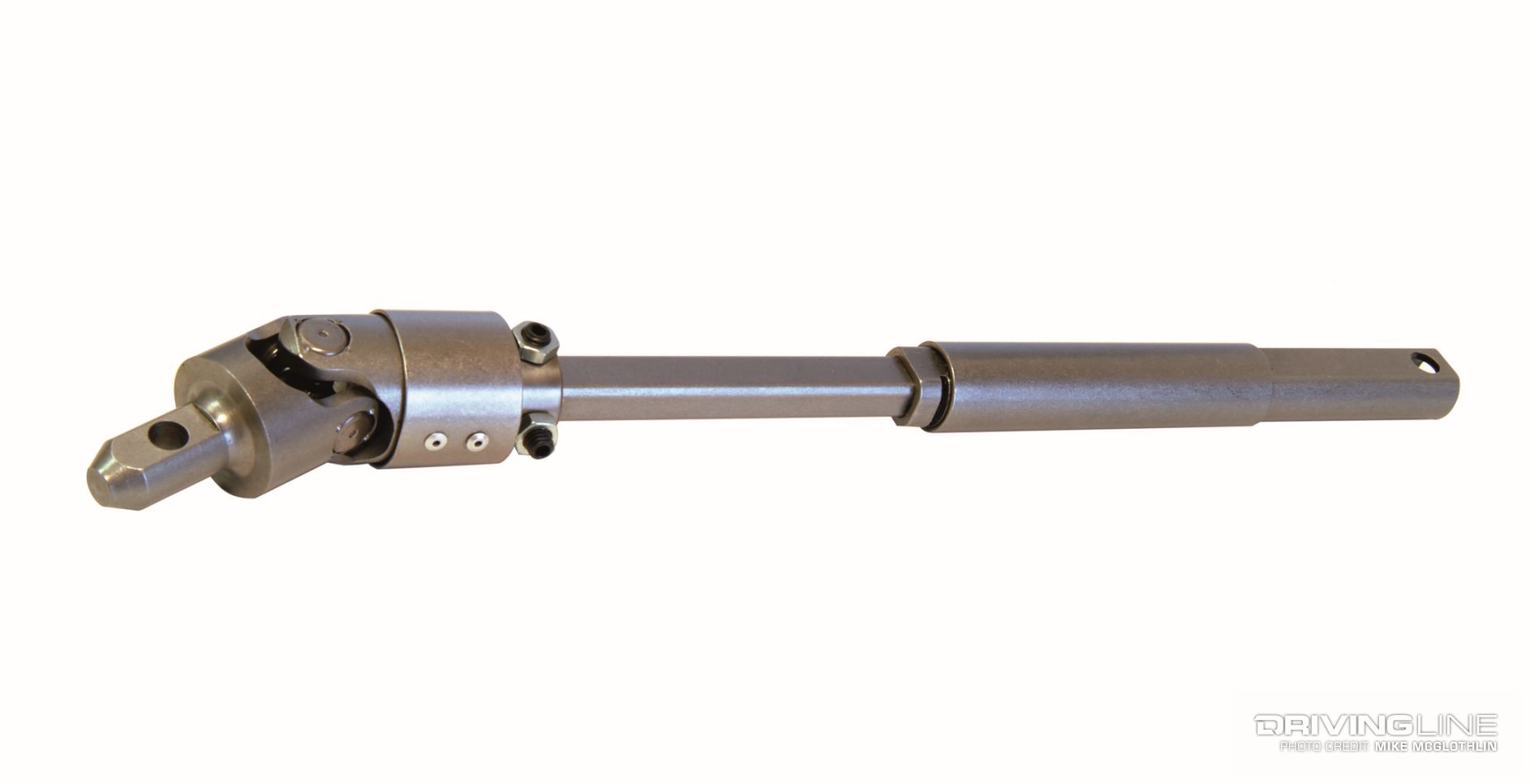
Steering Shaft Replacement
With bigger wheels and tires comes added stress for nearly all of the factory steering components, especially the steering shaft. In short, the steering shaft connects the steering wheel to the steering box along the frame. The problem with the factory shaft is that the splined slip joint, which is greased at the factory, eventually loses its lubrication at one end of the joint due to grease settling in the end that sits lower. The result is the infamous steering column noise often referred to as a groan, clunk, or creak. Borgeson makes a complete, bolt-in ready replacement shaft (PN 000937 for ’01-’07 HD trucks), complete with a slotted double-D sliding joint and a vibration reducing machined needle bearing U-joint. It’s a permanent fix for the factory steering shaft issue and is a must-have upgrade if you’re running larger wheels and tires or venture off-road often.
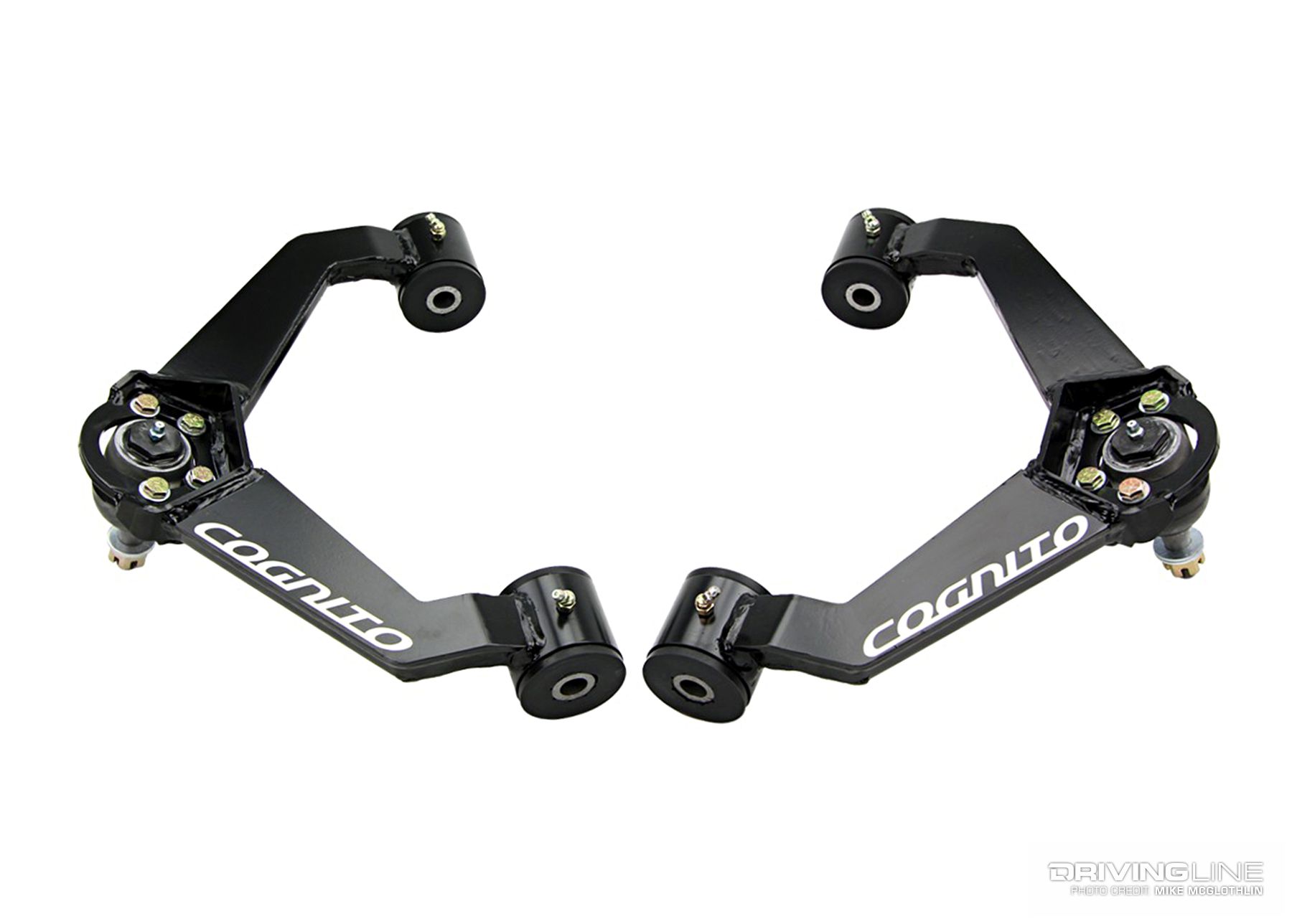
Upper Control Arms
Increased ball joint wear is a major problem once enthusiasts crank up the torsion bars, install a lift, or add bigger wheels and tires. Cognito Motorsports solves this common problem, as well as several others, with its tubular upper control arm (UCA) kit. For starters, its UCA kit fixes the binding ball joint angles created by leveling kits and also utilizes bolt-in ball joints (vs. the factory pressed-in units). The bumpstop is also relocated to the A-arm in order to increase suspension travel, which alleviates the harsh ride that surfaces with the torsion bars fully cranked. And last, but not least, new shock brackets are offered for both extended aftermarket shocks or for those retaining the factory length shocks.